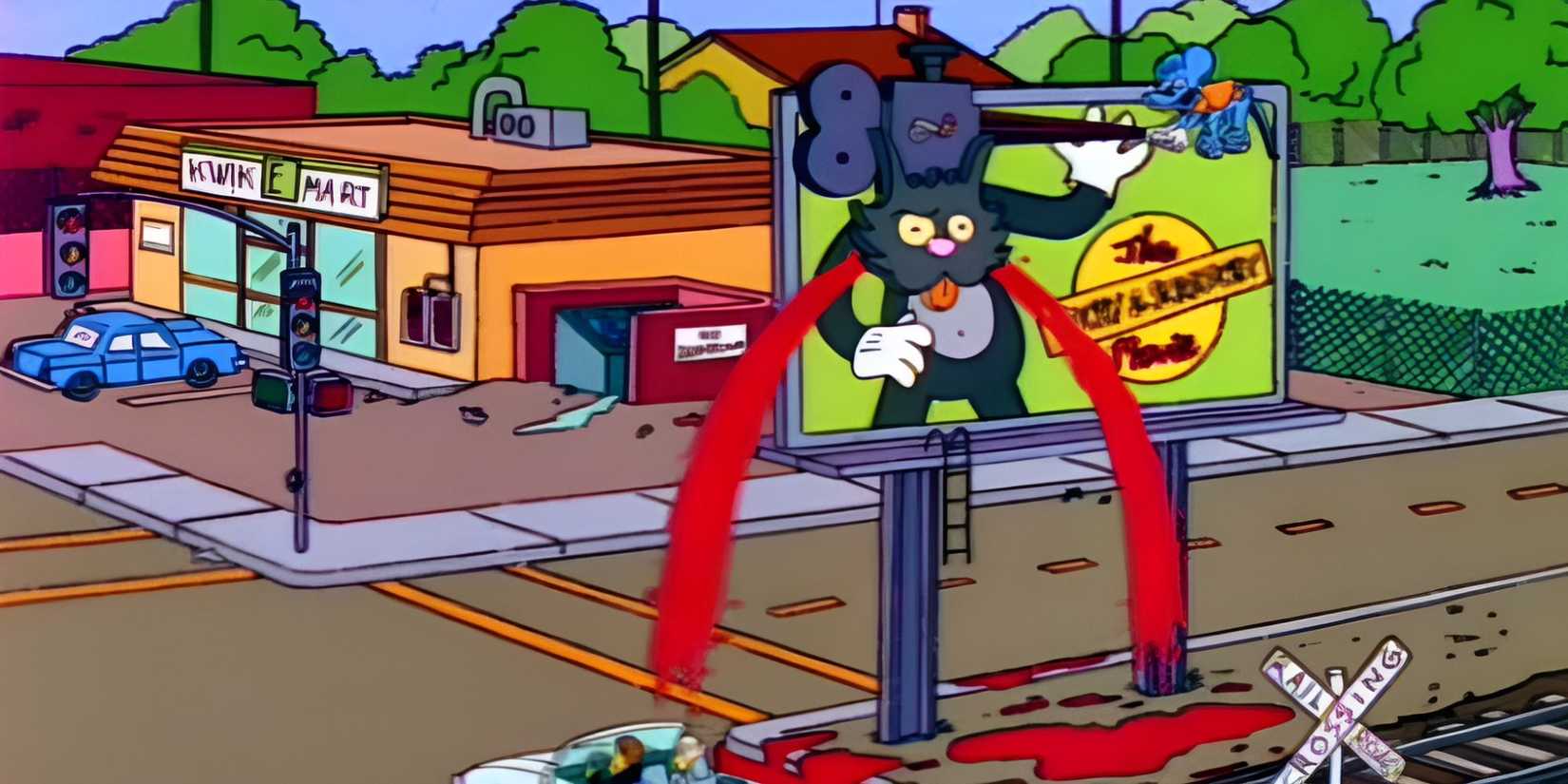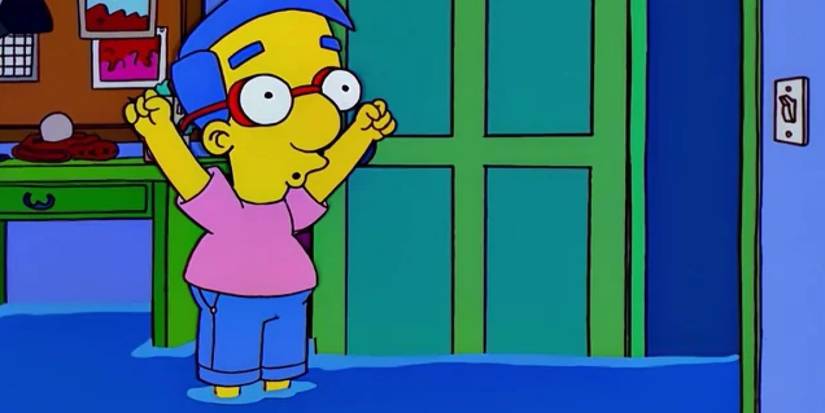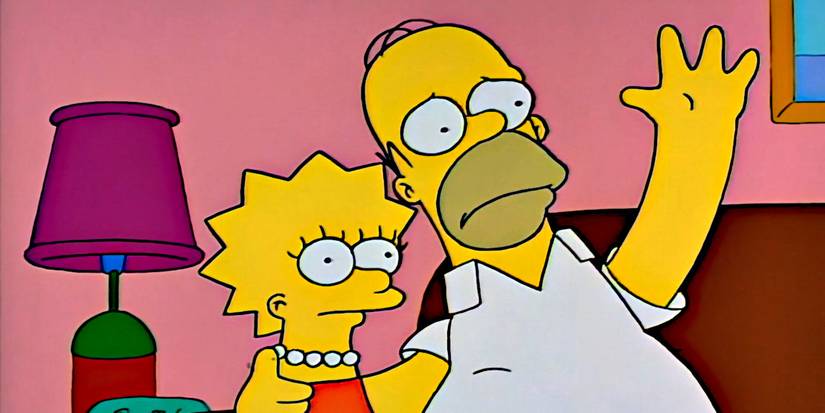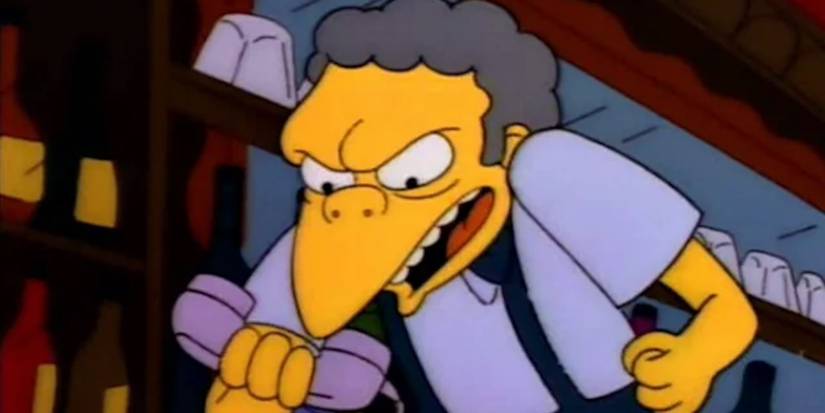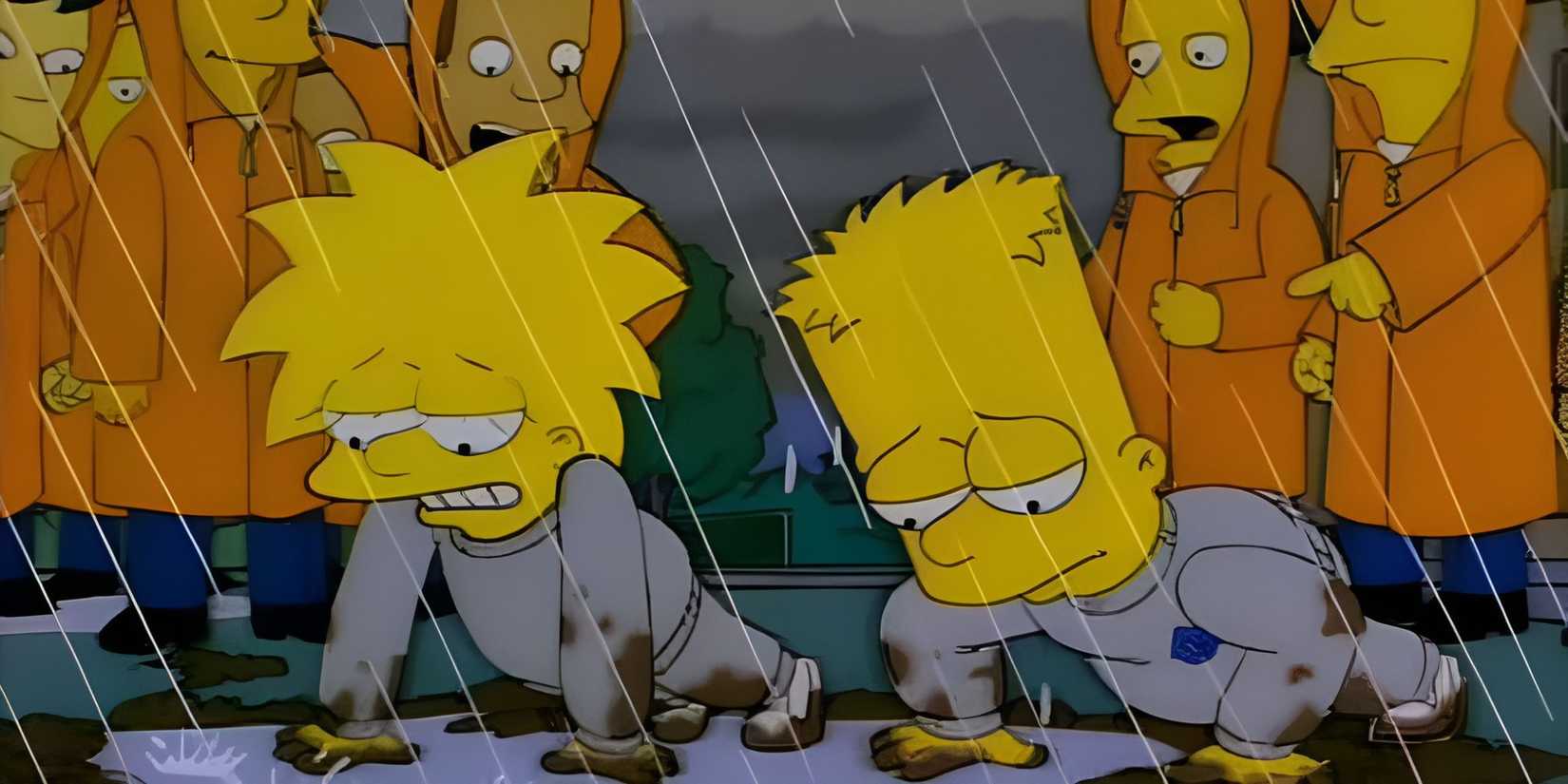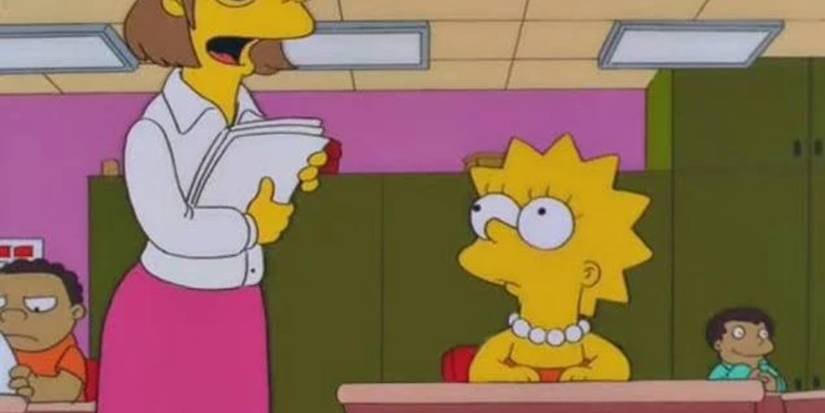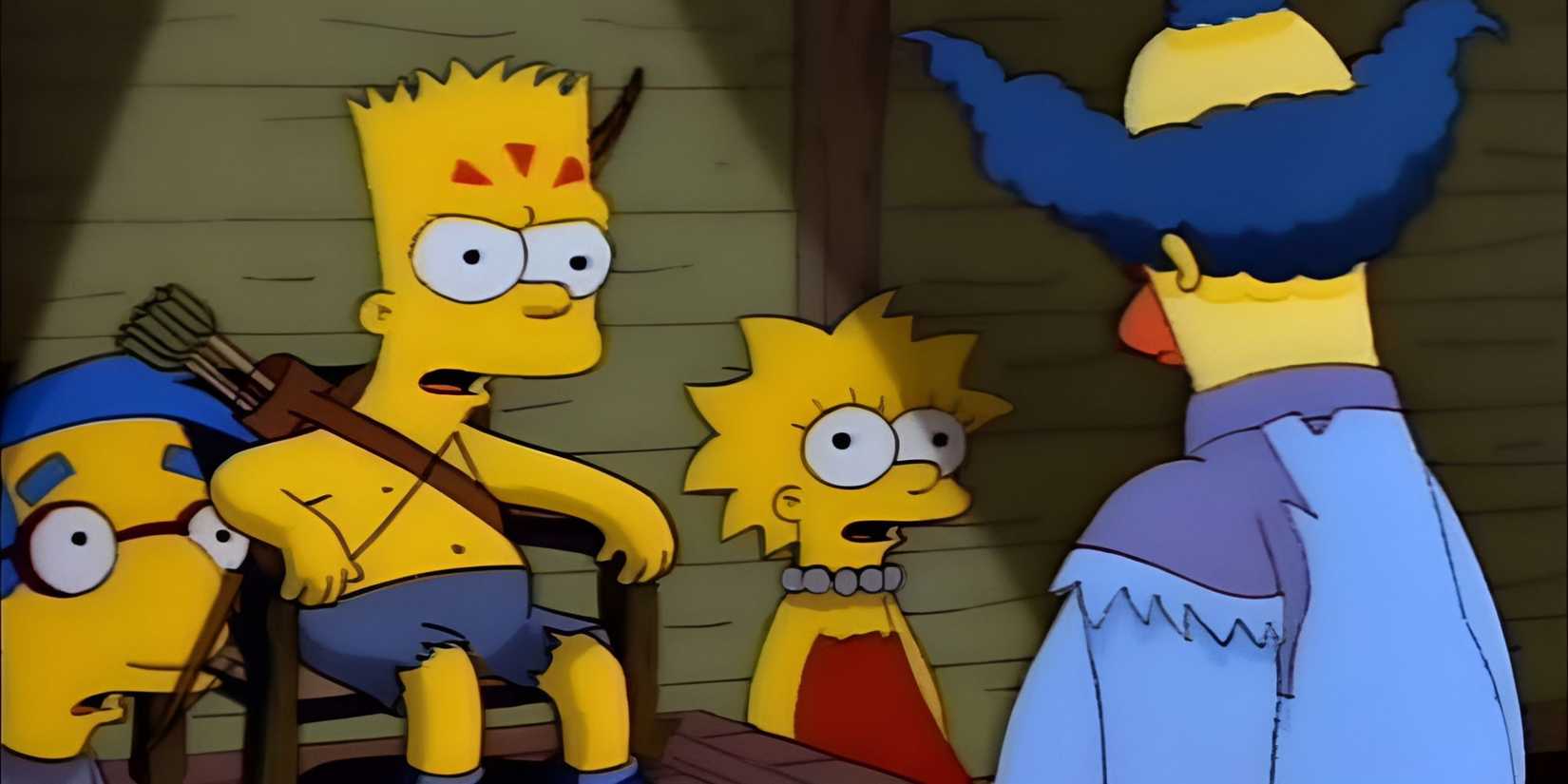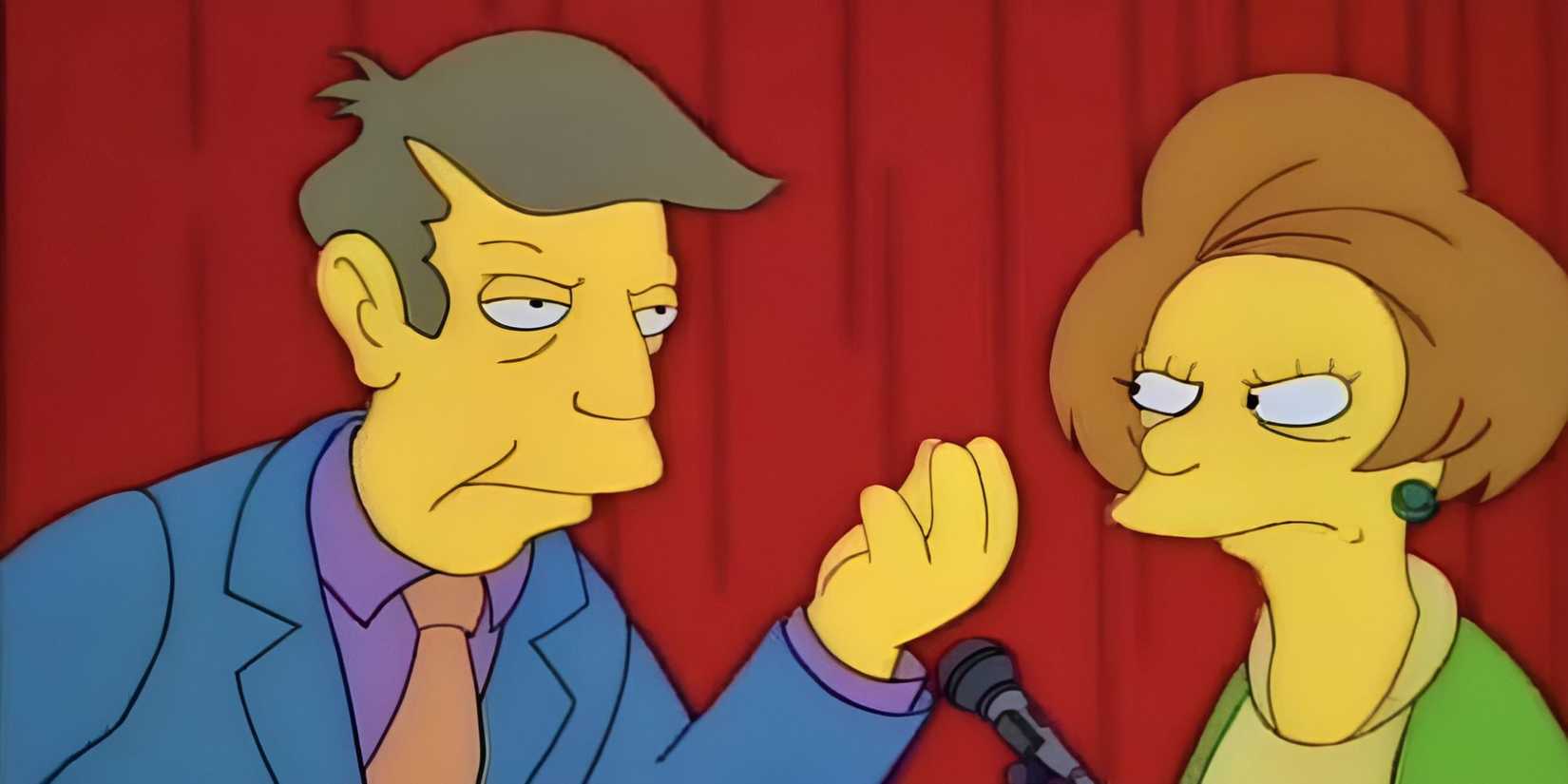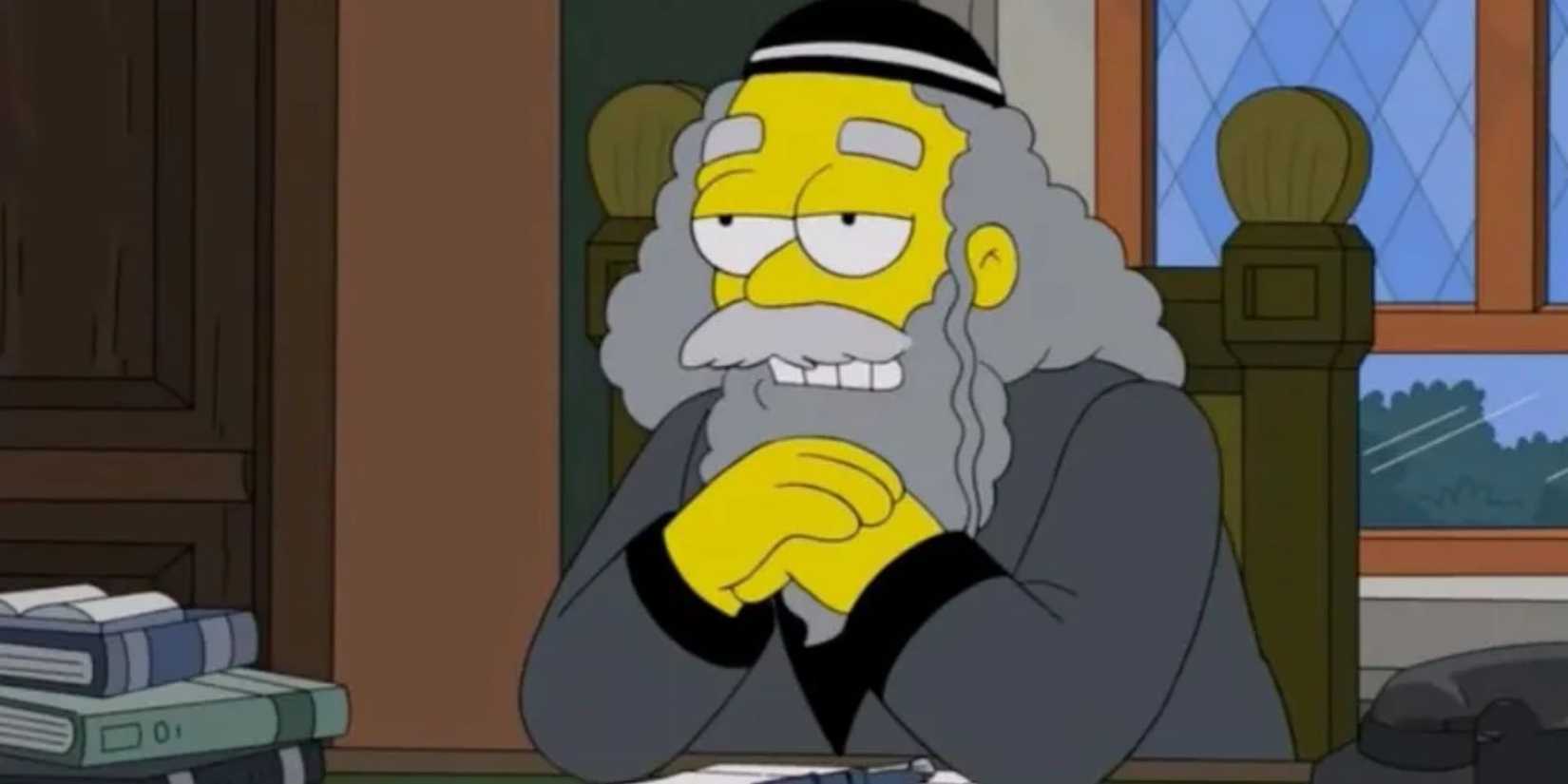
Anybody can enjoy The Simpsons if they find the right episode: die-hard sports fans, rom-com lovers, viewers who love action, and pretty much everyone else. There are so many references to movies, television, and other media that at least one of the many allusions in each episode is going to strike a chord with somebody. Like other shows, there are even characters who act as extended parodies of real-life people. The references never end, whether they’re one-off or indefinite.
Bookworms get plenty to appreciate, too, in episodes both recent and old. Season 34’s “One Angry Lisa” has people reading several books in the middle of a trial, and Season 2’s “The Raven” is an atmospheric rendition of Edgar Allan Poe‘s famous poem of the same name. This classic segment from the first “Treehouse of Horror” is an extended parody of a literary work which (though terrific) doesn’t technically count as an Easter Egg. By contrast, the following list is about much shorter moments, from relatively brief scenes to quick montages to moments that go by so quickly that you can blink and miss them. Ranked by how funny they are and how much you can appreciate about them upon repeated viewings, the series’ greatest literary Easter Eggs (which include all kinds of books) show how watching The Simpsons can be more of an intellectual endeavor than watching other animated sitcoms.
10
Moe Wrote the Book on Love
Season 8, Episode 24 “The Simpsons Spin-off Showcase”
“The Simpsons Spin-off Showcase” is one of the weirdest episodes in the series, as it displays a few mini spin-off ideas and clumps them into one episode. One of them involves Grampa Simpson (Dan Castellaneta) being reincarnated as a love machine in Moe’s Tavern. The segment revolves around love-tester Grampa helping Moe (Hank Azaria) go on a successful date. After Moe tells Grampa he wrote the book on love, Grampa replies, “Yeah, All Quiet on the Western Front.”
What a burn. It’s also a reference to one of the most famous novels about World War I, whose title makes it sound like Moe has a non-existent romantic life. But this scene also sends up the format of shows that depend so heavily on the audience’s reactions, which are supposed to let the viewers at home know how to react (or tell them how to react). As such, Grampa’s zinger wins an “ooooo!” It feels artificial, as does Grampa’s character in this show in general. Abraham Simpson isn’t the clever-banter type, so this reference to Erich Maria Remarque‘s novel also feels like it’s making fun of spin-offs in general.
9
A Novelized Version of ‘Itchy and Scratchy: The Movie’
Season 4, Episode 6 “Itchy & Scratchy: The Movie”
Unable to watch Itchy and Scratchy: The Movie in theaters, Bart (Nancy Cartwright) is having a rough time while everyone else in town is re-watching the film any number of times. The kid is reduced to buying the novelized version instead. It’s called “Itchy & Scratchy: The Movie,” and then in a smaller text below, “The Novel.” The title alone illustrates that this isn’t the real thing, and Bart’s reaction supports that assumption: “It’s just not the same.” He throws it in a basket.
All the more amusing that Norman Mailer is the author. It’s quite absurd that a writer of such stature would stoop so low as to write a book based on a children’s cartoon movie with no deeper meaning whatsoever. On the other hand, the man did write The Executioner’s Song, so if there’s ever a writer who could bring the nuanced violence of this cat and mouse duo to life, perhaps Mailer would be the one to call.
8
Milhouse for Supper
Season 6, Episode 6, Segment 3 “Nightmare Cafeteria” from “Treehouse of Horror V”
The Simpsons‘ fifth Halloween special is one of the most famous “Treehouse of Horrors” out there, and it ends with a pretty strong segment: “Nightmare Cafeteria.” Basically, all the teachers at Springfield Elementary have started eating all the students. Near the end of it, Milhouse (Pamela Hayden), Bart, Ralph, and Lisa (Yeardley Smith) are the only kids left in Mrs. Krabappel’s (Marcia Wallace) class. Everyone else has been eaten, but Milhouse is alarmed to find that his teacher is reading a book called “The Joy of Cooking Milhouse” in class. The cover has a picture displaying the top half of Milhouse’s face, as his head appears to be in a pot.
How someone could even write a book about cooking a child who’s never been cooked only adds to the comedy. Taking from Irma S. Rombauer‘s enormously successful The Joy of Cooking, this little reference strongly suggests that Milhouse is in grave danger. He slyly tells Bart and Lisa that “any one of us could be next,” and so they sneak out of the room in an attempt to escape. Both the presentation and the reaction to this book results in laughter, making this Easter Egg particularly tasty.
7
The Ten Commandments
Season 2, Episode 13 “Homer vs. Lisa and the 8th Commandment”
“Homer vs. Lisa and the 8th Commandment” begins on Mt. Sinai in 1200 B.C. As Moses (Phil Hartman) was away, everyone was coming up with false gods and committing all kinds of sins. Homer (Dan Castellaneta), who is a thief, talks to a guy who carves graven images. He also casually talks to an adulterer who apparently slept with his wife recently. But the fun’s over when lightning signals the return of Moses, who announces the Ten Commandments.
It’s funny how he says he will “read them in no particular order,” pointing out how the commandments don’t seem to be numbered based on their levels of importance. He doesn’t list them in the order we have in the Bible, but the episode only has so much runtime. Since Moses looks and sounds a good deal like Charlton Heston, this also technically counts as a movie Easter Egg, too (referencing 1956’s The Ten Commandments). Nevertheless, this is still a fun take on the literature.
6
Moe’s Exhaust Pipe Gag
Season 7, Episode 2 “Radioactive Man”
Moe is talking to the guys about how he used to be on a television show. He used to play a tough guy named Smelly whose schtick involved peering into an exhaust pipe and getting a face full of soot. Moe points out that it was difficult to keep coming up with excuses for the character to keep looking into that exhaust pipe without it feeling too contrived, which is funny enough. But he continues, saying they had good writers: “William Faulkner could write an exhaust pipe gag that would really make you think.”
Known mostly for his novels and short stories, Faulkner did write for movies and television as well. He adapted Ernest Hemingway’s To Have and Have Not for the screen, and he was a co-writer of The Big Sleep. Not all of Faulkner’s adaptations were well-received, but that’s not what he won the Nobel Prize for anyway. It’s hilarious to imagine Faulkner writing a sitcom in which a kid gets spewed by an exhaust pipe, but he would probably try to make such an event feel like more than meets the eye.
5
An Aggressive Poetry Discussion
Season 8, Episode 25 “The Secret War of Lisa Simpson”
A quote from the great John Keats: “Truth is beauty, beauty truth, sir!” The “sir” is an addition that feels amusingly natural in Rommelwood Military School, where the class is discussing “Ode on a Grecian Urn” in the same tone of voice they use in every other situation. The teacher asks in the same kind of voice: “But the truth can be harsh and disturbing! How can that be considered beautiful?!” Lisa doesn’t mind their tone of voice, though; she’s very impressed that they’re discussing poetry.
It’s funny how these kids are discussing Romantic poetry with the same rigor they bring to gun practice. Notice that John Keats is described as a “civilian” on the chalkboard, another detail that makes this reference fit the military-setting even better. We never get an in-depth discussion of Keats’ famous ode, but no matter, this is still one of the best literary Easter Eggs.
4
The Beating of That Hideous Heart
Season 6, Episode 2 “Lisa’s Rival”
The Diorama-rama is supposed to have the kids evoke the essence of books through (you guessed it) dioramas. We get a violent take on John Steinbeck‘s The Grapes of Wrath and a tragically empty box for Roald Dahl‘s Charlie and the Chocolate Factory. Eventually, we come across a real cow’s heart for Edgar Allan Poe’s The Tell-Tale Heart. Bart and Lisa swapped it out for Allison’s (Winona Ryder) real diorama, and now that the girl is getting humiliated, Lisa’s conscience is kicking in.
Or beating in, as we hear a heart beat while focused on Lisa’s guilty visage. She quickly becomes overwhelmed, screaming, “It’s the beating of that hideous heart!” It’s funny when everyone looks at her, and she says, “I mean, I think I hear something.” She opens the space in the floorboards where Allison’s real project is. It’s cool, to be sure, and so is Lisa’s diorama, but the sound of the heart is the best Easter Egg of the bunch.
3
The Pig’s Head
Season 4, Episode 1 “Kampy Krusty”
In one of Season 4’s best episodes, Bart and other terribly neglected kids take over Kamp Krusty. Kent Brockman (Harry Shearer) reports the story live, ridiculously describing the situation as “a million times worse” than Vietnam, Afghanistan, and Iraq put together. Despite the obvious hyperbole, this is still a bad scenario: We can see a Krusty figure that’s being burned by the kids wearing dilapidated clothing and chanting, “Burn, Krusty, Burn!” As Kent gets word that he’s been given permission to talk to the leader of this tribe, we catch a glimpse of a pig’s head on a stick.
This head also has flies buzzing around it, a clear if brief allusion to William Golding‘s classic 1954 novel, Lord of the Flies. The pig’s head shows up in a few different contexts in the book, and let’s just say that the symbol never gets any more optimistic. The Simpsons chooses a very amusing time to evoke it here, now that the kids are in charge. However, the context of the episode makes it more like a symbol of revolution against oppressors, whereas the novel’s message is much bleaker.
2
Books on the Shelf
Season 6, Episode 21 “The PTA Disbands”
One of Season 6’s best episodes, “The PTA Disbands” presents a catch-22 (the scenario, not the novel): Springfield Elementary is failing on multiple fronts, but there’s no money to improve anything. It’s not just a matter of poor nutrition or disgraceful class trips; they don’t even have useful books. As Mrs. Krabappel points out to Principal Skinner, “the only books we have are ones that were banned by other schools.”
We then get a closeup of a wonderful illustration of that point. In order: Tek War (a series of sci-fi novels conceived by William Shatner), Theory of Evolution (implied to be comparably old to Charles Darwin‘s On the Origin of Species from 1859), Sexus (a graphically sexual and controversial novel from 1949), 40 Years of Playboy, Steal This Book, Dr. Seuss‘ Hop on Pop, and a “Junior Illustrated Edition” of Salman Rushdie‘s dangerously controversial The Satanic Verses. All hilarious for different reasons, these books make up a hysterical smorgasbord of evidence that the school needs more money.
1
Judaism Debate With Rabbi Krustofsky
Season 3, Episode 6 “Like Father, Like Clown”
Bart wants to get Rabbi Krustofsky (Jackie Mason) to forgive his son for becoming Krusty the Clown, which he considers disgraceful. With Lisa’s research, Bart presents the rabbi with a quote from The Babylonian Talmud: “A child should be pushed aside with the left hand, and drawn closer with the right.” The rabbi hits back with the fifth commandment, so the kids prepare for round two. After losing to the Book of Joshua, Bart hilariously interrupts a circumcision to quote the Talmud: “Who will bring redemption? The jesters!”
Then, during a chess match in the park, Bart tries one more time: “The Jews are a swinging bunch of people. I mean, I’ve heard of persecution, but what they went through is ridiculous. But the great thing is, after thousands of years of waiting and holding on and fighting, they finally made it.” The rabbi is deeply moved by this quote, but it’s not from Rabbi Hillel, Judah the Pious, Maimonides, or the Dead Sea Scrolls. It’s from Sammy Davis Jr.‘s autobiography: Yes I Can. This tennis match of scripture and non-scripture humorously and movingly bridges the academic with the down-to-earth, coming together to perfectly resolve the story’s conflict.

